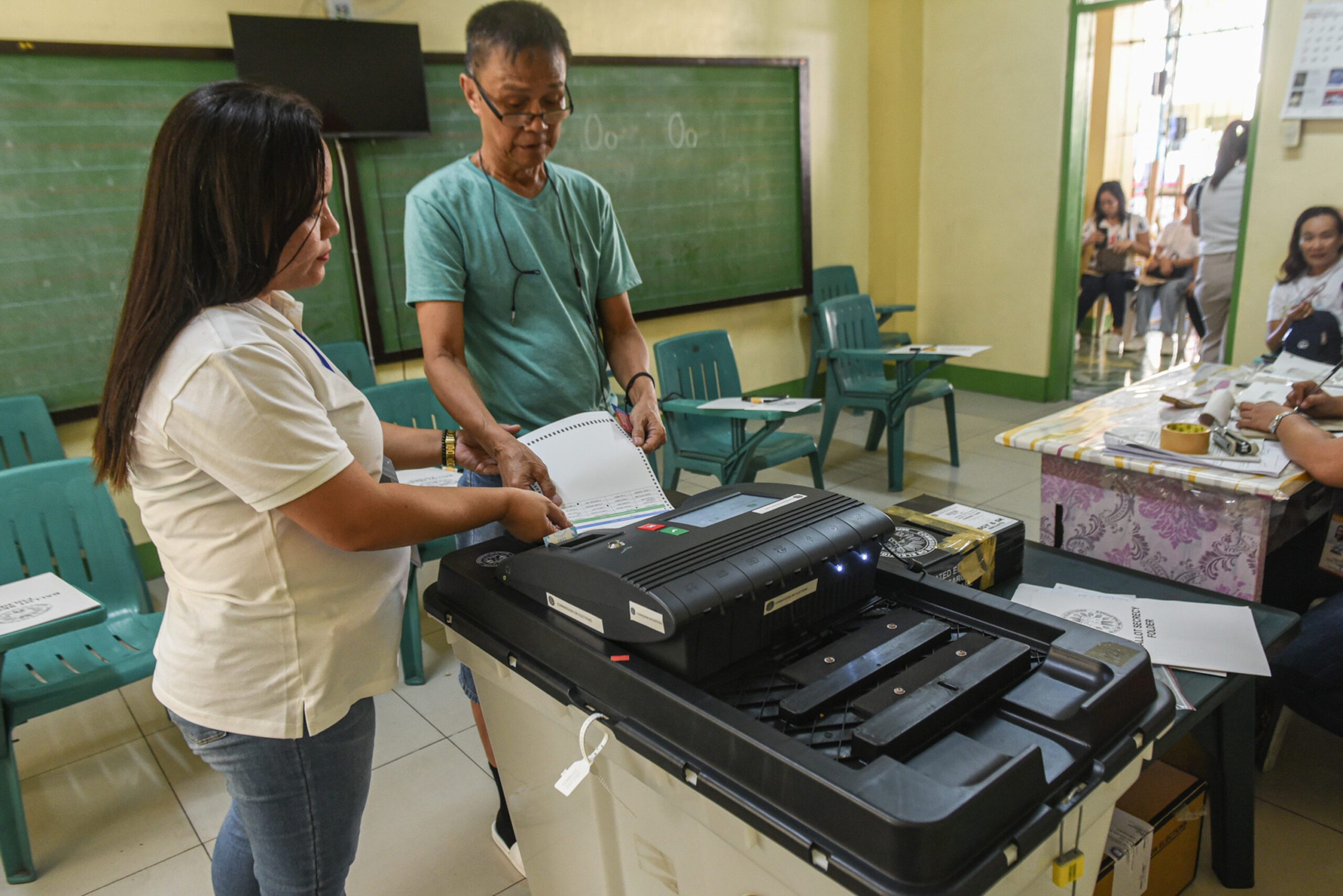SUMMARY
This is AI generated summarization, which may have errors. For context, always refer to the full article.

MANILA, Philippines – The Philippines’ longtime voting technology provider Smartmatic fired back at the Commission on Elections (Comelec) over its decision to bar the company from participating in bidding processes on all poll contracts.
In a statement on Thursday, November 30, Smartmatic said it was disqualified on grounds that were not raised in the complaint filed by a group of IT experts against the poll firm.
“We are very confident that had Comelec informed us of the matter, allowed us to explain our side, and present countervailing evidence, the unfair disqualification would not have been meted out,” it insisted.
The Comelec dumped Smartmatic after it figured in a United States lawsuit against former Philippine elections chief Andres Bautista, over an alleged bribery scheme in the 2016 polls.

Not named in the case
The lawsuit – filed by the Department of Homeland Security’s Homeland Security Investigations at the US District Court in the Southern District of Florida in September – was primarily against Bautista, who allegedly received payments totaling $1 million from a poll tech firm in exchange for assistance in securing multimillion-dollar election contracts in 2016.
The funds that were sent to Bautista’s bank account supposedly passed through the US financial system, which is why Washington intervened.
The company was not named in the case, but the description clearly matched Smartmatic, which secured contracts totaling $199 million for the 2016 Philippine elections. Both Bautista and Smartmatic have denied wrongdoing in the past.
On Thursday, Smartmatic also claimed that it is “not facing such formal charge in the United States.”
The case was first reported by international news service MLex in September, and has been carried by numerous local and international outlets since.
“Disqualifying Smartmatic in the ongoing bidding for the 2025 voting machines and future procurements on the basis of mere news reports and unofficial, leaked documents from abroad (which have yet to be verified by the United States Department of Justice) is utterly and facially unacceptable in any jurisdiction, including the Philippines,” it said.
“If there was indeed a pending investigation and indictment, Comelec is expected to abide by the constitutional tenet of a ‘presumption of innocence.’ It is foundational to any legal system, here in the Philippines or anywhere in the world, that investigations or indictments do not automatically amount to guilt, nor does it affirm one’s innocence,” Smartmatic added.
Asked to respond to Smartmatic’s statement, the Comelec stood by its disqualification order.
“The Supreme Court said, so long as due process was observed by an agency body or a part of the government, then in that case, there’s no grave abuse of discretion,” Comelec Chairman George Garcia said on Thursday.

Little to do with the 2022 elections
The 17-page ruling by the Comelec released on Wednesday, November 29, was in response to a petition submitted to the poll body in June by the team of former information and communications technology chief Eliseo Rio.
His complaint had alleged that the 2022 automated elections were marred with fraud.
The Comelec’s decision, however, had little to do with the 2022 elections, which the poll body maintained was credible, and focused instead on the alleged 2016 bribery scheme.
“These allegations not only undermine and cast a shadow over the procurement protocols but also threaten to erode the public’s confidence in the electoral system,” the ruling read.
Smartmatic has provided Comelec with poll machines and the technology since the 2010 national elections, the Philippines’ first automated polls. It has secured contracts totaling P25 billion over the last decade, according to the Philippine Center for Investigative Journalism.
For the 2025 elections, the Comelec is pushing for an overhaul of the automated elections system, a project worth P18.8 billion.
Smartmatic was among those who purchased bidding documents in October. – Rappler.com
Add a comment
How does this make you feel?




There are no comments yet. Add your comment to start the conversation.